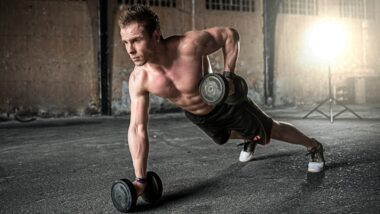Comparing Bodybuilding and Strength Training Competitions
Bodybuilding and strength training are two popular forms of physical fitness. Both disciplines focus on developing muscle strength and overall fitness but do so through differing methodologies and goals. Bodybuilding emphasizes aesthetics and muscle definition, while strength training prioritizes functional strength and performance. Competitions in each area highlight these differences, as participants prepare for requirements unique to their fitness philosophy. Bodybuilders compete in events showcasing muscularity and symmetry, where judges evaluate contestants’ physique. In contrast, strength training competitions focus on quantifiable achievements, where participants lift significant weights in exercises such as squats, deadlifts, and bench presses. As a result, both fields attract individuals with varying aspirations and motivations. Understanding these distinctions can help people choose a path that aligns with their fitness goals and preferences. Individuals interested in participating in either realm should consider their primary objectives. This decision informs appropriate training regimens and nutritional approaches, essential components of success in either discipline. Exploring the nuances between bodybuilding and strength training enables fitness enthusiasts to make informed choices enhancing their physical well-being and overall happiness.
When examining bodybuilding competitions, it is essential to understand their structured format. Competitors preparation starts long before the event date, often requiring months of training. The regimen includes targeted workouts, strict dietary plans, and potentially supplementation to enhance muscle growth. During competitions, bodybuilders are rated on various criteria. Judges look for muscularity, symmetry, conditioning, and stage presence. This meticulous evaluation ensures that only the most dedicated and well-prepared athletes are recognized in their respective categories. Furthermore, the atmosphere at these events is electric. Supporters, coaches, and fellow competitors rally around the athletes, creating an inclusive and motivational environment. Bodybuilding can also have long-lasting effects on athletes’ self-esteem and overall mental health. Winning or placing in competitions can be a significant achievement for participants, contributing to personal growth. While many aspire to compete at high levels, others enjoy the discipline for health benefits and community involvement. This camaraderie fosters lifelong friendships and a support system that extends beyond fitness. Overall, bodybuilding competitions offer an engaging experience for those drawn to this artistic and physically demanding discipline.
Understanding Strength Training Competitions
Strength training competitions focus on demonstrating maximum strength through specific lifts commonly recognized in the fitness community. These competitions often consist of three main lifts: the squat, bench press, and deadlift. The goal is to lift as much weight as possible in each category, which requires exceptional training and physical commitment. Competitors typically follow tailored training programs designed to improve their performance in these lifts. Nutrition and recovery play vital roles in preparing for events, ensuring athletes are at their peak on competition day. Competitors are often ranked based on their performance, with strict regulations governing how lifts are executed. In addition, lifters must adhere to category weight classes, allowing for fair competition among similarly sized athletes. This structure emphasizes not only physical strength but also technique and mental fortitude. Many strength training enthusiasts thrive in this environment, seeking to outperform their personal bests and achieve new milestones. While winning is essential, many participants find joy in the continuous improvement of their skills and strength. The support among athletes during these competitions fosters a sense of community that encourages motivation and camaraderie.
One notable difference between bodybuilding and strength competitions is the training approach employed by participants. Bodybuilders often engage in higher-volume workouts, focusing on multiple sets and repetitions to enhance muscle hypertrophy. This style is optimal for developing muscle size and aesthetics. Conversely, strength training emphasizes low-repetition, high-weight training to maximize strength performance. Lifters concentrate on lifting heavier weights with fewer repetitions to build functional strength. Additionally, bodybuilders typically employ a wide variety of exercises targeting different muscle groups. This approach ensures balanced development across the entire physique. On the other hand, strength trainers concentrate on a limited set of compound movements that effectively translate into competition success. These training styles can lead to distinctly different physical results. Bodybuilders may achieve a more muscular and defined physique, whereas strength trainers develop functional strength capable of lifting significantly heavier weights. When choosing between these two disciplines, individuals should carefully assess their fitness goals and aspirations. This decision will ultimately inform their training styles, nutritional strategies, and overall commitment to their chosen path in fitness.
Nutrition Differences
Nutrition is a critical component of both bodybuilding and strength training, but strategies differ significantly across these disciplines. Bodybuilders typically adhere to strict dietary regimens designed to support muscle growth while minimizing body fat. This approach often involves careful calorie tracking, macronutrient distribution, and meal timing to optimize muscle retention and fat loss. Many bodybuilders consume higher protein intake to promote muscle recovery and growth following intense workouts. In contrast, strength trainers might focus primarily on overall calorie consumption to support their energy needs. Weight gain can be vital for strength athletes because increased muscle mass can directly correlate with performance improvements. Consequently, a strength trainer’s diet might be less about cutting calories and more about fueling for their lifting sessions. Both nutrition strategies emphasize the importance of hydration, micronutrient intake, and timing of meals. Understanding how diet influences physical performance and recovery is crucial for successful outcomes. Fitness enthusiasts should take these differences into account when planning their nutrition to align with their specific goals and training methods, maximizing their effectiveness in their chosen discipline.
Injury prevention is another aspect where bodybuilding and strength training diverge significantly. Bodybuilding often involves isolation exercises, allowing bodybuilders to focus on specific muscle groups. This targeted approach can minimize injury risk when performed with proper form. However, bodybuilding training can also lead to overtraining specific areas, resulting in imbalances that cause injuries over time. Conversely, strength training incorporates compound movements that engage multiple muscle groups simultaneously, promoting overall functional and structural strength. While this approach can improve coordination and joint stability, lifters may experience injuries if they neglect proper form or do not build a solid foundation. To mitigate injury risk, both bodybuilders and strength trainers should prioritize warming up, proper stretching, and mobility exercises. Implementing deload weeks or active recovery periods also contributes to improving longevity in both disciplines. Education about biomechanics and proper lifting techniques is essential for maximizing performance and minimizing injury risk. Personal trainers and coaches can provide significant insights, helping individuals improve their movements and habits. Consistent education and practice can keep fitness enthusiasts safe while they pursue their bodybuilding or strength training goals.
Choosing the Right Path
Ultimately, the decision to pursue bodybuilding or strength training should be based on personal preferences, goals, and motivations. Individuals drawn to aesthetic improvements may find bodybuilding more fulfilling, as the competitions emphasize appearance and muscular definition. Alternatively, those seeking functional strength and measurable performance may benefit more from strength training methods. This journey should also factor in lifestyle, as both disciplines require different commitments in terms of time and effort. Bodybuilding may necessitate stricter dieting, while strength training might include more flexibility in food choices based on performance goals. Interested athletes should explore each discipline’s unique culture and community, fostering connections with like-minded individuals. This engagement can provide insights into training methods and success stories that inspire progression. Many enthusiasts find joy in hybrid training, incorporating elements from both disciplines to achieve personalized fitness goals. Ultimately, the journey toward good health involves discovering what works best for you as an individual. Striving for improvement and enjoyment will enhance your overall fitness experience and make it sustainable for years to come.
In conclusion, bodybuilding and strength training represent two distinct yet complementary approaches to physical fitness. Understanding the differences between these disciplines can significantly inform an individual’s decision-making process when choosing their fitness path. Both sports offer unique benefits, challenges, and communities that can positively impact personal growth and development. By examining expectations, training methods, and nutritional strategies, those interested in fitness can build a roadmap tailored to their aspirations. The journey may require experimentation and adaptation, but this exploration can lead to discovering what truly resonates with your goals. It’s essential to appreciate the value each discipline brings to physical health and personal well-being. In engaging with either bodybuilding or strength training, participants should prioritize enjoyment and fulfillment in their chosen discipline. Keeping an open mind allows room for growth and learning from others, fostering connections and camaraderie in the fitness industry. Ultimately, no matter the chosen path, the commitment to physical health and self-improvement remains paramount. We encourage individuals to embrace the journey that lies ahead, celebrating progress and achievements along the way.





